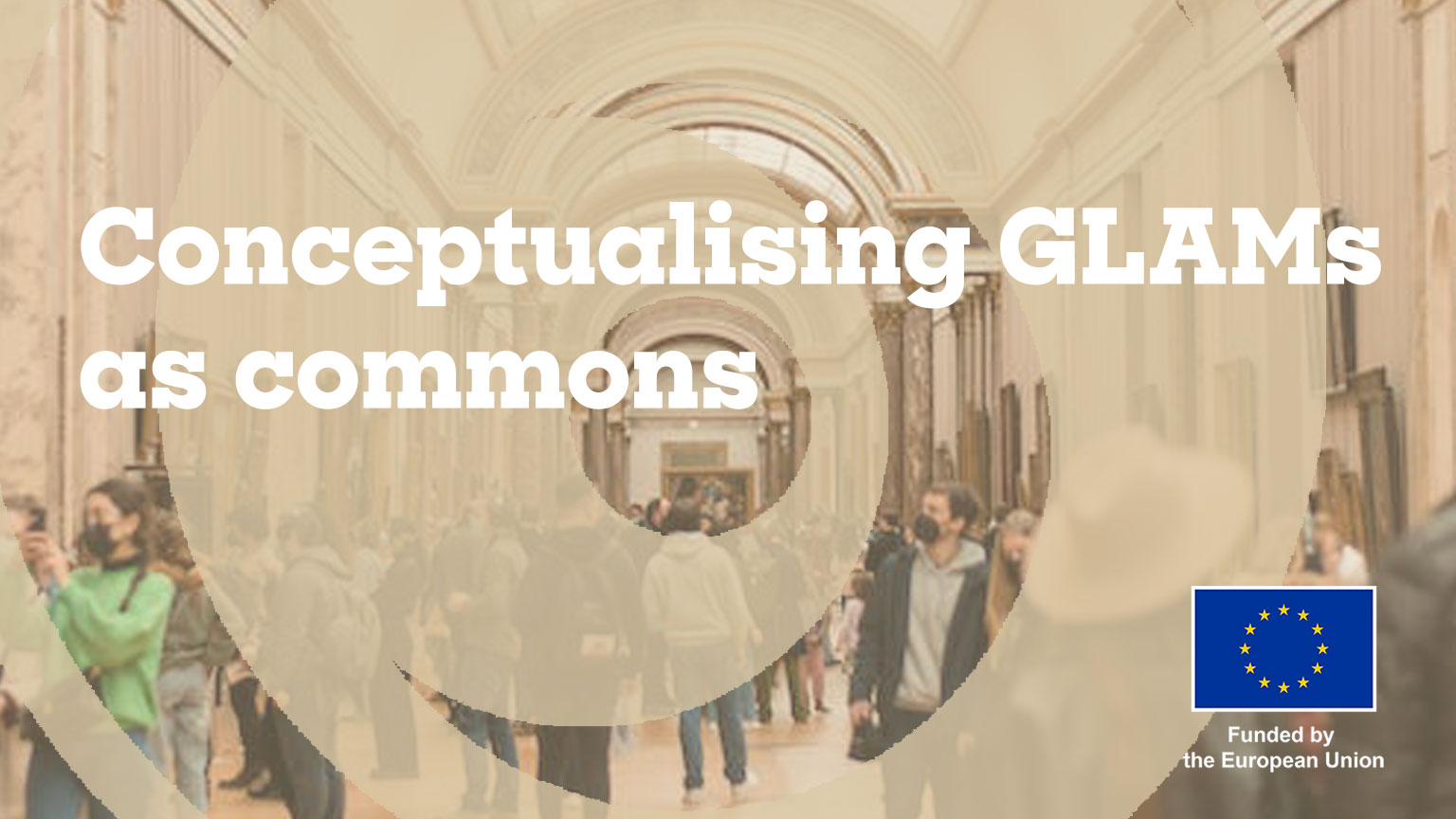
a working paper by Vasilis Avdikos, Mina Dragouni, Martha Michailidou, Dimitris Pettas (Panteion University):
Over the last decades, GLAMs (Galleries, Libraries, Archives and Museums) have faced several challenges, including the limitation of public funding due to the global economic crisis of 2008, the need to keep up with digitalization trends in order to make collections accessible to larger audiences, the implications of the COVID-19 pandemic which impacted income sources such as visitor revenues, licensing, donations, endowments and sponsorships. All these challenges require GLAMs to be proactive in adopting innovative strategies, collaborating with other institutions, leveraging partnerships, and seeking sustainable funding models to address their unique and evolving needs. In this paper, we explore the potentiality of GLAMs to operate as commons, towards ensuring their vibrancy, sustainability, and resilience, while meeting broader societal needs. The commons constitute a mode of resource management (in our case cultural ones) through which a specific community (instead of a state body or actors of the market) is responsible for the exploitation and management (or, in several cases also the production) of a resource under inclusive and democratic principles. In this way, the commons constitute of i) a (set of) commons pool resource(s), including a diverse range of material and intangible resources, ii) a group/ community that appropriate, use, manage and take care of the resources, iii) a governance/ management framework established through mixes of official and informal sets of rules, decision-making processes, governance arrangements.
Towards exploring the potentials of GLAMs to operate as commons, we review the extant literature of the commons in order to elaborate on the ontology of GLAMs and heritage commons and develop a conceptual framework of ‘commons-oriented’ GLAMs to navigate future research for workable solutions to the sector. Our review features the ‘Ostromian’ understandings of the commons, insights from the autonomist school of thought and other theoretical and practical articulations of the ‘new commons’. By exploring different types of commons-based ventures, such as urban commons, digital commons and cultural/heritage commons, we distinguish those elements that are mostly relevant to bring on board. Based on these we develop and present here, for the first time, a novel conceptual framework for studying GLAMs as commons, adapted to fit with the idiosyncrasies of the sector. Moreover, we explore the ways relevant commoning practices could be developed towards ensuring GLAMs’ sustainability and resilience, while meeting broader societal needs. According to Linebaugh (2008), the social process, the praxis of commoning, refers to the collective management of resources. Furthermore, the creation and reproduction of the commons is materialised through commoning practices of co-production, co-appropriation, and co-management, developed upon horizontal and democratic principles and processes (Card, 2018).
Funded by the European Union. Views and opinions expressed are, however, those of the author(s) only and do not necessarily reflect those of the European Union or European Research Executive Agency (REA). Neither the European Union nor the European Research Executive Agency (REA) can be held responsible for them.